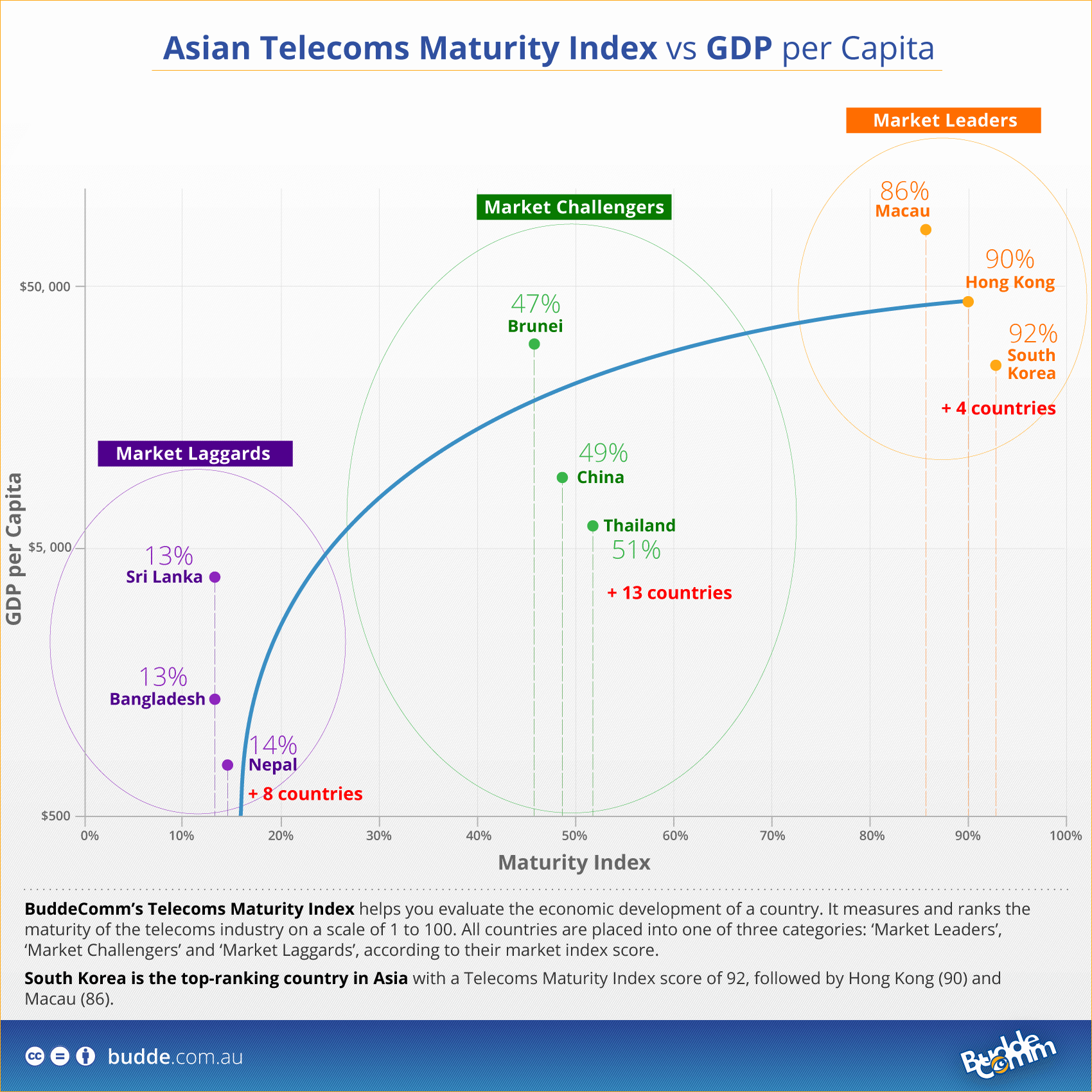BuddeComm’s Telecoms Maturity Index for this year indicates that from a second position last year, Ghana has been completely displaced from the top three and even not listed among the market challengers.
The rankings for 2019 showed Mauritius still maintained its lead from last year, as the most matured telecom market on the continent with a 49 score, while Algeria displaced Ghana for the second position with 43 points and South Africa also kicked Tunisia off the third place with a 34-point score.
BuddeComm’s Telecoms Maturity Index analyses the broadband, mobile & fixed line markets of a country on top of a range of economic parameters to rank it on a scale of 1 to 100 and compare it to its region.
The 2019 market leaders: Mauritius remains the top-ranking country in Africa with a Telecoms Maturity Index score of 49, followed by Algeria (43) and South Africa (34).

BuddeComm’s Telecoms Maturity Index measures and ranks the maturity of a country’s telecoms industry on a scale of 1 to 100. All countries are placed into one of three categories: ‘Market Leaders’, ‘Market Challengers’ and ‘Market Laggards’, according to their Market Index score.
In Mauritius, the thriving tourism market has stimulated the broadband sector. There is an extensive DSL infrastructure and operators have deployed fibre-based services in a number of localities. Mauritius Telecom invested Rs5.1 billion to roll out fibre across the island. Fibre is available to about 85% of the company’s fixed broadband customer base.
In Algeria, Mobilis, one of the 3 major mobile operators, has contracted Huawei as a partner for its network migration to 5G. Mobile penetration approaches 116% and mobile internet accounts for about 92% of all internet connections in the country.
Market challengers: The top 3 market challengers are Libya with a score of 23, Lesotho (20.5) and Zimbabwe (20.2). Last year, the top challengers were Mauritania (13), Uganda (13) and Kenya (12).
Developing nations: Among the developing markets, the top three countries are Burundi (9.4) Uganda (9.3) and Nigeria (9.1). Last year, the developing markets were Angola (7) Chad (7) and Cameroon (6).
Mobile telephony remains by far the dominant telecom service across Africa, accounting for more than 90% of all telephone lines on the continent. Given the very poor condition of fixed-line infrastructure in most markets, mobile internet access as a consequence also accounts for between 95% and 99% of all internet connections.
The size and range of the diverse markets within Africa have contributed to varied market penetration rates between countries. By early 2018 the highest mobile penetration was found in countries including South Africa (169%), Botswana (160%) and Mauritius (147%). To some degree high penetration reflects the popularity of consumers having multiple SIM cards despite efforts among most regulators to enforce measures by which operators must register SIM card users.
Source: Adom News














